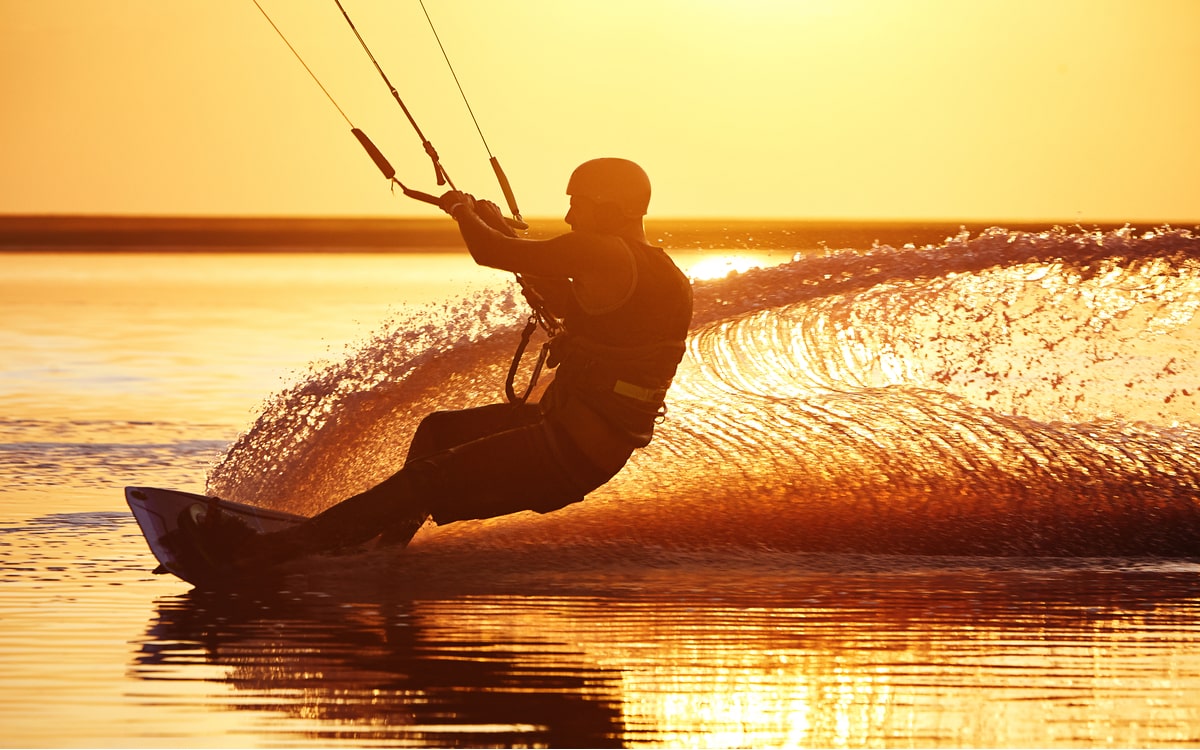
Are you ready to make a splash with some cool water sports facts? Water sports aren't just about getting wet; they're about adventure, skill, and sometimes a little bit of daring. From the thrill of surfing massive waves to the serene glide of a kayak on a calm lake, there's something for everyone. Did you know that surfing originated in Hawaii and was once considered a sacred activity? Or that synchronized swimming is now called artistic swimming? Water sports can be competitive or just for fun, but they always promise excitement. Whether you're a fan of the classics like swimming and diving or curious about newer activities like flyboarding, water sports offer endless possibilities. Dive into these 24 facts and discover what makes water sports so captivating!
The Thrill of Water Sports
Water sports offer excitement, adventure, and a chance to connect with nature. Whether you're riding waves or exploring underwater worlds, there's something for everyone. Let's dive into some fascinating facts about these exhilarating activities.
-
Surfing Origins: Surfing dates back to ancient Polynesia, where it was a central part of culture and society. Hawaiian chiefs often competed in surfing contests to demonstrate their prowess.
-
Olympic Debut: Surfing made its Olympic debut in the 2020 Tokyo Games, bringing this thrilling sport to a global audience.
-
Kitesurfing Speed: Kitesurfing can reach speeds of up to 55 mph. The combination of wind power and water creates an adrenaline-pumping experience.
-
Scuba Diving Depths: The deepest recorded scuba dive reached 1,090 feet. Divers explore underwater ecosystems, discovering vibrant marine life and shipwrecks.
-
Wakeboarding Evolution: Wakeboarding evolved from surfing and waterskiing. Riders perform tricks on a board while being towed by a boat.
-
Sailing's Ancient Roots: Sailing has been around for thousands of years, with ancient Egyptians using sailboats for trade and transportation.
The Science Behind Water Sports
Understanding the science behind water sports can enhance performance and safety. From physics to biology, various scientific principles come into play.
-
Buoyancy Basics: Buoyancy allows objects to float. In water sports, this principle helps keep athletes afloat and stable.
-
Hydrodynamics: Hydrodynamics studies how water moves around objects. This knowledge helps design faster boats and more efficient swim strokes.
-
Pressure Changes: Scuba divers must manage pressure changes to avoid decompression sickness, also known as "the bends."
-
Wind Power: Wind is crucial for sailing and kitesurfing. Understanding wind patterns can improve navigation and speed.
-
Thermal Regulation: Water can quickly lower body temperature. Wetsuits help maintain warmth by trapping a thin layer of water against the skin.
Environmental Impact of Water Sports
While water sports offer fun and adventure, they also have environmental impacts. It's important to be aware of these effects and take steps to minimize them.
-
Coral Reef Damage: Careless diving and anchoring can harm delicate coral reefs, which are vital marine ecosystems.
-
Pollution Concerns: Fuel spills from boats and jet skis contribute to water pollution, affecting marine life and water quality.
-
Wildlife Disturbance: Watercraft noise can disturb marine animals, disrupting their natural behaviors and habitats.
-
Sustainable Practices: Many water sports enthusiasts advocate for sustainable practices, such as using eco-friendly equipment and supporting conservation efforts.
Water Sports Safety Tips
Safety is paramount in water sports. Following guidelines and using proper equipment can prevent accidents and injuries.
-
Life Jackets: Wearing a life jacket is essential for safety in many water sports, providing buoyancy and protection.
-
Weather Awareness: Checking weather conditions before heading out can prevent dangerous situations caused by sudden storms or high winds.
-
Buddy System: Having a partner can enhance safety, especially in activities like scuba diving and kayaking.
-
Skill Development: Taking lessons and practicing regularly can improve skills and confidence in water sports.
-
Equipment Maintenance: Regularly inspecting and maintaining equipment ensures it functions properly and safely.
Unique Water Sports Around the World
Water sports vary widely across the globe, with each region offering unique activities and experiences.
-
Dragon Boat Racing: Originating in China, dragon boat racing involves teams paddling in sync to the beat of a drum.
-
Ice Swimming: Popular in colder regions, ice swimming involves swimming in freezing waters, often through a hole cut in the ice.
-
Underwater Hockey: Also known as "Octopush," this sport is played on the pool floor with players using sticks to push a puck into the opposing team's goal.
-
Flyboarding: This futuristic sport uses a water jetpack to propel riders into the air, allowing them to perform flips and tricks above the water.
Making a Splash with Water Sports
Water sports offer a thrilling mix of adventure, exercise, and fun. Whether you're surfing the waves, paddling through serene waters, or diving into the depths, there's something for everyone. These activities not only boost physical health but also improve mental well-being by reducing stress and increasing happiness. Plus, they provide a great way to connect with nature and enjoy the outdoors. From the adrenaline rush of jet skiing to the peacefulness of kayaking, water sports cater to all preferences and skill levels. They also foster a sense of community, bringing people together through shared experiences and challenges. So, next time you're near a body of water, consider trying a new sport. You might just find a new passion that keeps you active and engaged. Dive in and make a splash—your body and mind will thank you!
Was this page helpful?
Our commitment to delivering trustworthy and engaging content is at the heart of what we do. Each fact on our site is contributed by real users like you, bringing a wealth of diverse insights and information. To ensure the highest standards of accuracy and reliability, our dedicated editors meticulously review each submission. This process guarantees that the facts we share are not only fascinating but also credible. Trust in our commitment to quality and authenticity as you explore and learn with us.


